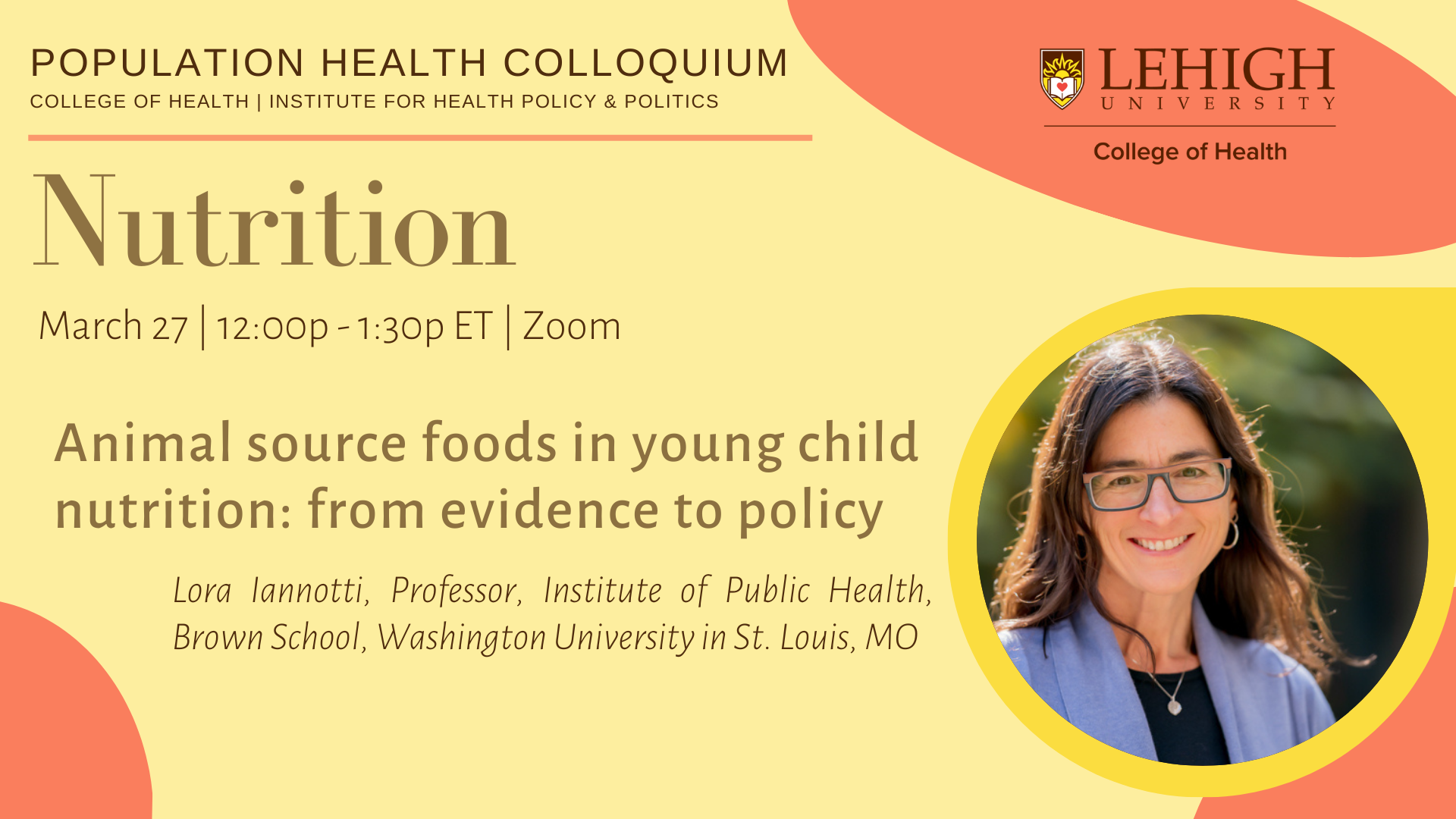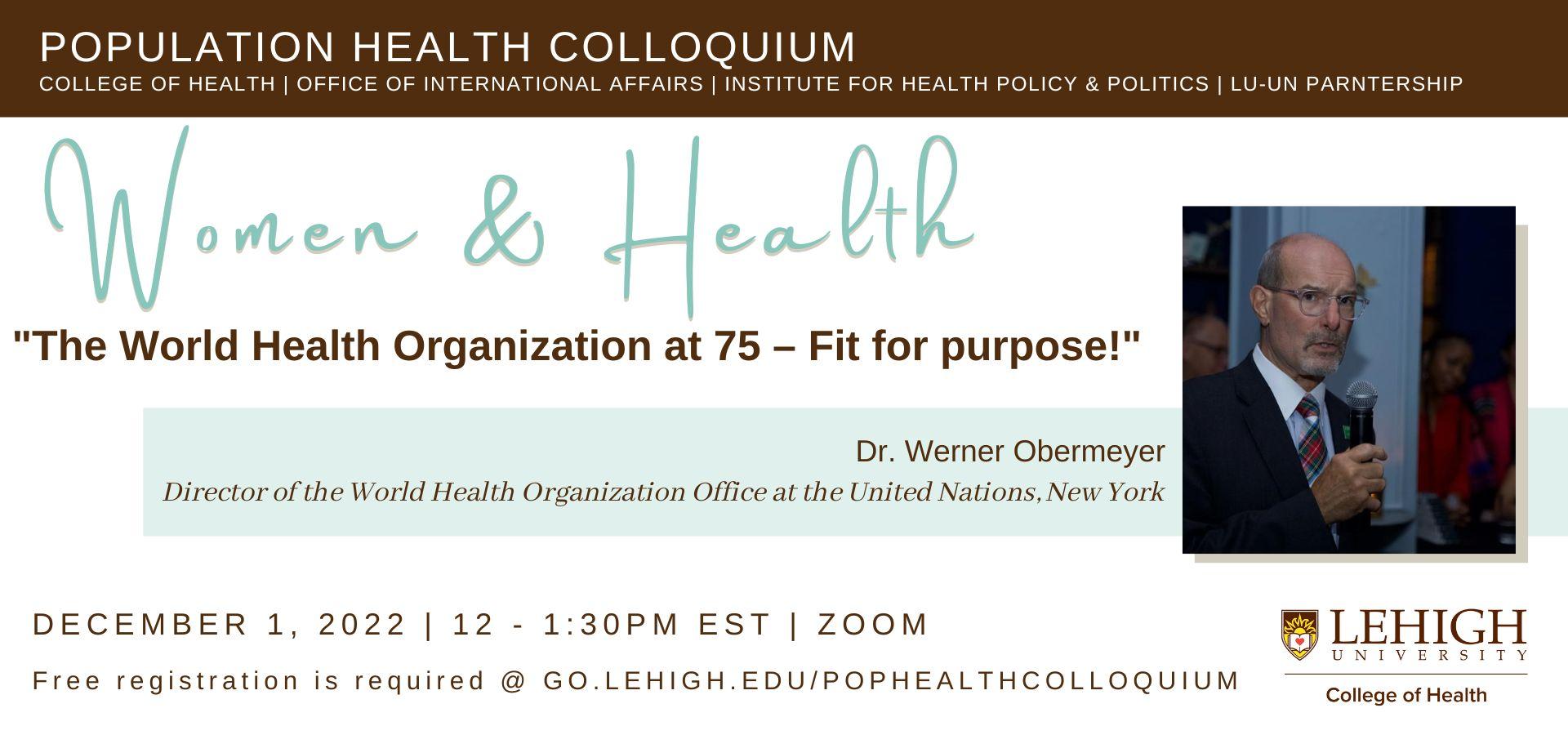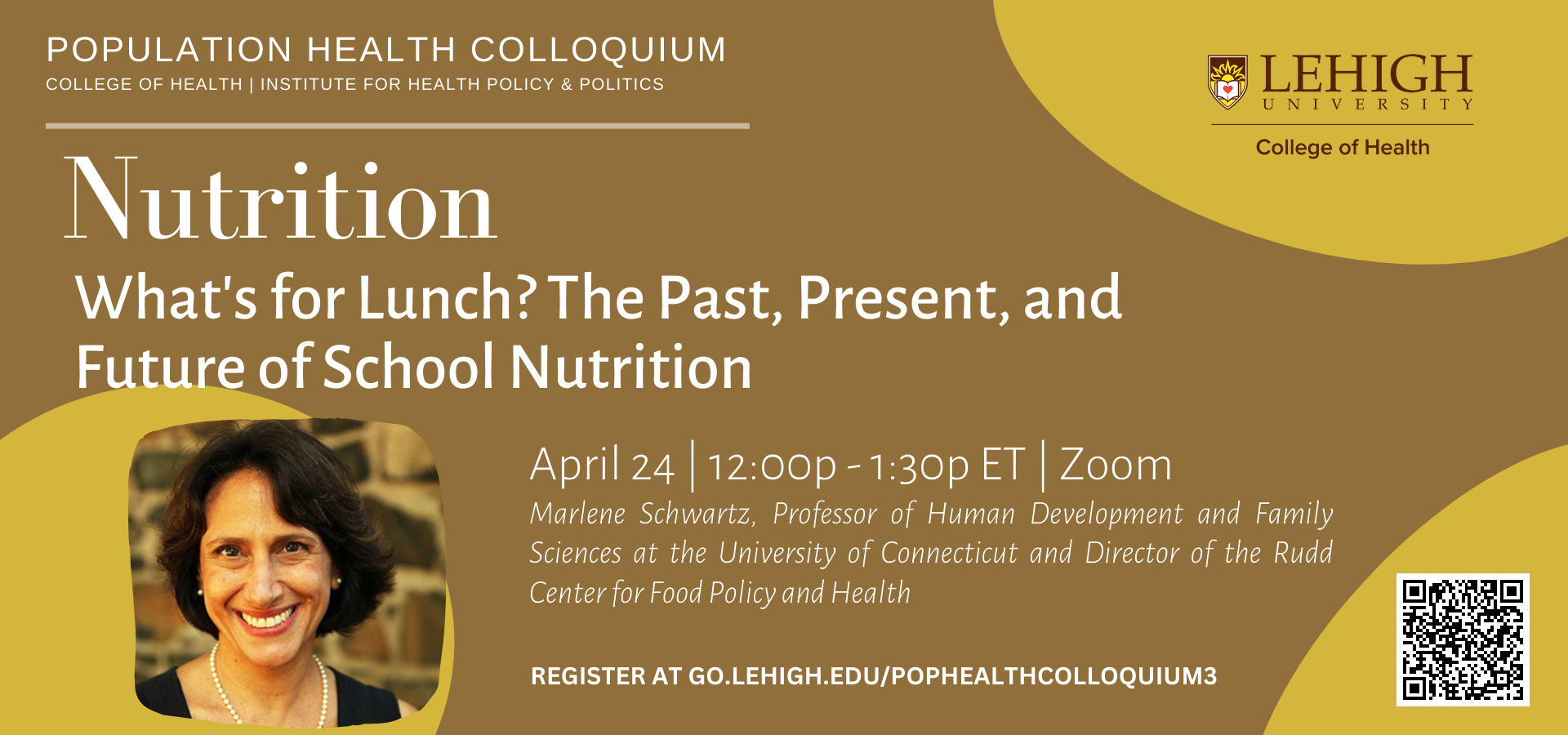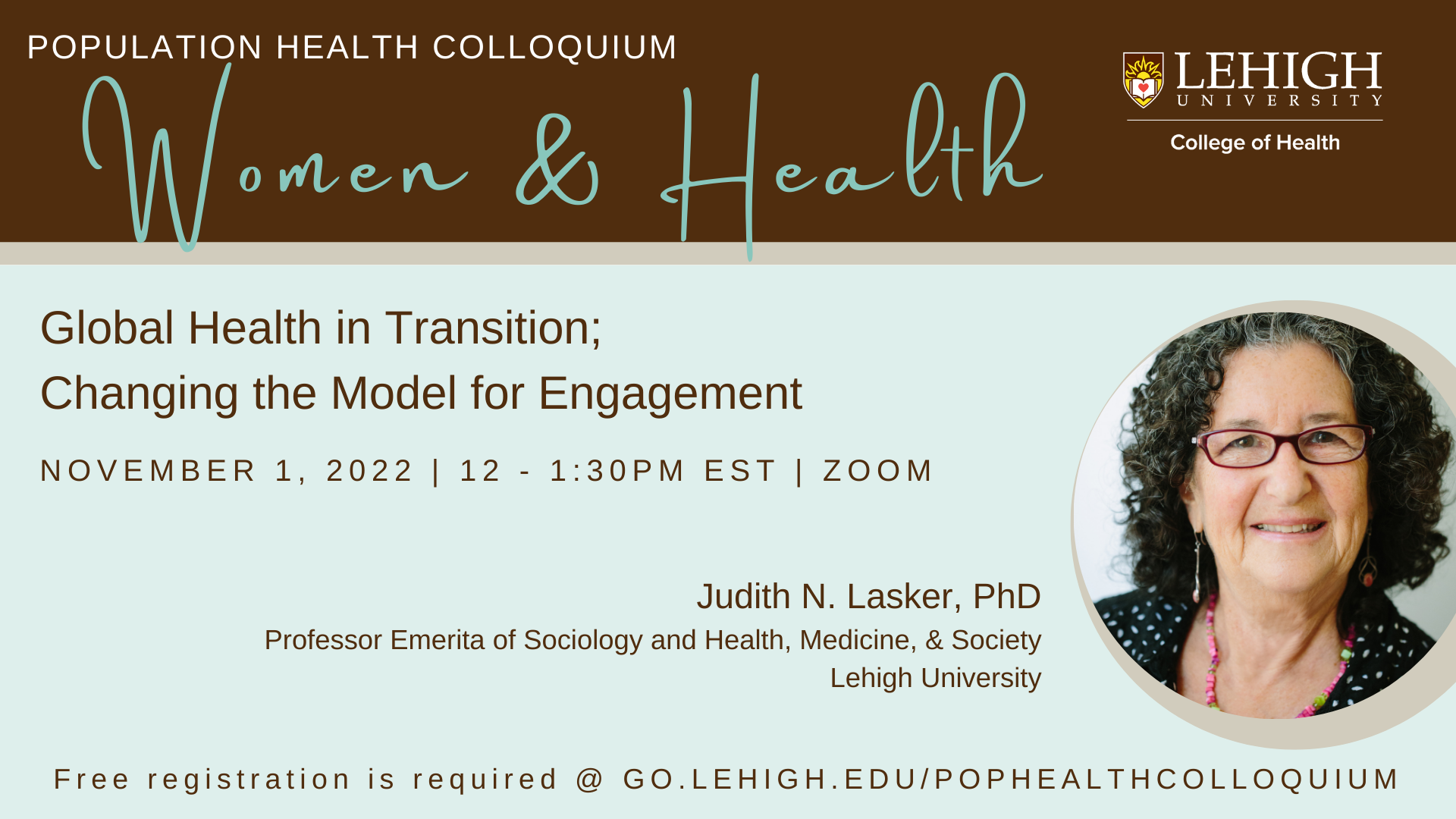
Animal Source Foods in Young Child Nutrition: From Evidence to Policy
By: Max DeCaro, ‘25
On March 27th, 2023, Lehigh University’s College of Health and Institute of Health Policy & Politics were honored to welcome Dr. Lora Iannotti to speak as part of an ongoing nutrition-focused population health colloquium. Her webinar presentation was entitled: Animal Source Foods in Young Child Nutrition: From Evidence to Policy. Dr. Iannotti is a professor in the Institute of Public Health at Washington University in St. Louis’s Brown School.
Iannotti was introduced by Dr. Beth Dolan, the Interim Dean for Lehigh’s College of Health, and Dr. Eduardo Gómez, the Director of Lehigh’s Institute for Health Policy & Politics and a leading scholar in the politics of food, nutrition, and health. Dolan and Gómez discussed Dr. Iannotti’s expertise in the areas of maternal and child nutrition and infectious diseases, particularly in the contexts of poverty. Iannotti applies epidemiological methods in order to investigate public health interventions aimed at the prevention of stunted childhood growth, and leads projects in Haiti, Ecuador, and East Africa in collaboration with local partners. In addition, she is the founder and director of the E3 Nutrition Lab, is on multiple journal and public health advisory boards, and consults with the World Health Organization (WHO) and other international NGOs.
Iannotti began her lecture with a discussion on current global nutrition disparities and how related nutritional deficiencies, including issues of “hidden hunger,” have impacted the development of hundreds of millions of children. Iannotti discussed how in her E3 Nutrition Lab, the primary focus is on working to create, evaluate, and implement interventions which effectively and equitably lessen the prevalence and negative effects of stunted childhood development. In particular, she and her team focus on the positive impacts of childhood nutrition programs which focus on animal source foods. Dr. Iannotti expanded on the nutritional values of animal source foods and their importance in providing easily bioavailable nutrients to children within the critical first 1,000 days of life, including pregnancy and lactation. She explained: “In global public health nutrition, we emphasize the first 1,000 days of life because in the first 1,000 days of life, if there are insults or lack of certain nutrients during that period, you can have irreparable harm and consequences that last through a lifetime.” During these early life periods, Iannotti explains, the gastric capacity of children is highly limited, and thus necessitates the presence of easily bioavailable nutrients in the diet in order to ensure efficient nutrient uptake. Along with this, Dr. Iannotti emphasizes how the level of these important nutrients and state of those nutrients (how easily they can be transformed into things able to be used by the human body, etc.) is much higher and biologically available in animal-based, rather than plant-based, food products.
In addition, Dr. Iannotti took care to emphasize the importance of nuance and complexity in these situations, stressing that health disparities can be seen not only between but also within countries and that stunted growth can arise from generally poor diets and not simply the absence of food. Along with this, Iannotti discusses the challenges that often arise with animal source foods, such as large-scale farming’s contributions to climate change and destruction of biodiversity and high prices of many of these foods. She then goes on to address how her and her team work around these issues through many avenues, notably by focusing on animal products which are sustainable and cheap (fish, milk, and eggs are given as examples). In addition, the E3 Nutrition Lab team works to make sure that all foods in their interventions are cheap and culturally acceptable within the areas that they work before starting an intervention to help ensure success and equity throughout the process.


